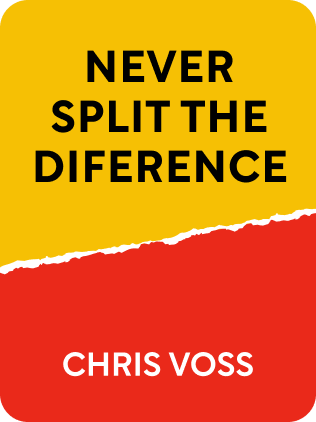

This article is an excerpt from the Shortform book guide to "Never Split the Difference" by Chris Voss and Tahl Raz. Shortform has the world's best summaries and analyses of books you should be reading.
Like this article? Sign up for a free trial here .
What are the qualities of a good negotiator? What do successful negotiators do differently from those that are merely mediocre?
The qualities of a good negotiator are all related to emotional intelligence and understanding your counterpart’s desires and fears. Negotiation is more about the heart than the mind.
Keep reading for more about the qualities of a good negotiator.
Guided by Emotions
We are all inherently irrational and impulsive, willing to make decisions with incomplete information and disregard for our own basic material interests if the decision satisfies a deeper emotional need.
Most people have two basic emotional needs: 1) to feel secure and 2) to feel that they are in control.
Successful negotiators, then, must navigate the complexity of human emotions to take advantage of those needs and give their counterpart the information that satisfies them.
The bottom line of any negotiation is: get the other person to be more comfortable with you, to see you more as a partner than an adversary. Once this happens, they’ll be far more willing to grant you access to their innermost thought processes and hidden desires: giving you the decisive negotiating advantage.
Qualities of a Good Negotiator
Most of what we call “negotiating” is happening beneath the surface. The qualities of a good negotiator, then, must include the abilities to identify, articulate, and ultimately use their counterpart’s hidden wants and irrational blind spots to their advantage. When you do this, you are making their reality conform to what you want them to give you.
What you need to do is reframe their view and alter their reality. You show them that by helping you achieve your desired solution, they will satisfy their own hidden wants. Ultimately, you are using their instincts to your advantage. There are three main ways to do this.
- Alter the other person’s relationship with time. Don’t let yourself be taken hostage by rigid adherence to their deadlines. Use time to your advantage: remember, when you miss a deadline, they miss one too. You need to get your counterpart to start thinking this way.
- Exploit their notions of fairness and unfairness. Everyone is drawn to what they consider to be fair, equitable, and reasonable and repelled by what they consider to be unfair or unreasonable. You can reframe someone’s reality by showing that you care about how they think you’re treating them. This triggers their natural empathy and forces them to see you as an honest broker in the negotiation.
- Use framing effects. Framing effects are when people see things that are essentially the same as being vastly different, based solely on how they’re presented. By taking advantage of framing effects, especially loss aversion, you’ll be able to make them see reality as you want them to see it.

———End of Preview———
Like what you just read? Read the rest of the world's best book summary and analysis of Chris Voss and Tahl Raz's "Never Split the Difference" at Shortform .
Here's what you'll find in our full Never Split the Difference summary :
- Lessons learned from years as an FBI hostage negotiator
- Why negotiation is about emotional appeals, not rational ones
- The 5 methods for tactical empathy, which gets you what you want by focusing on the other person's feelings






